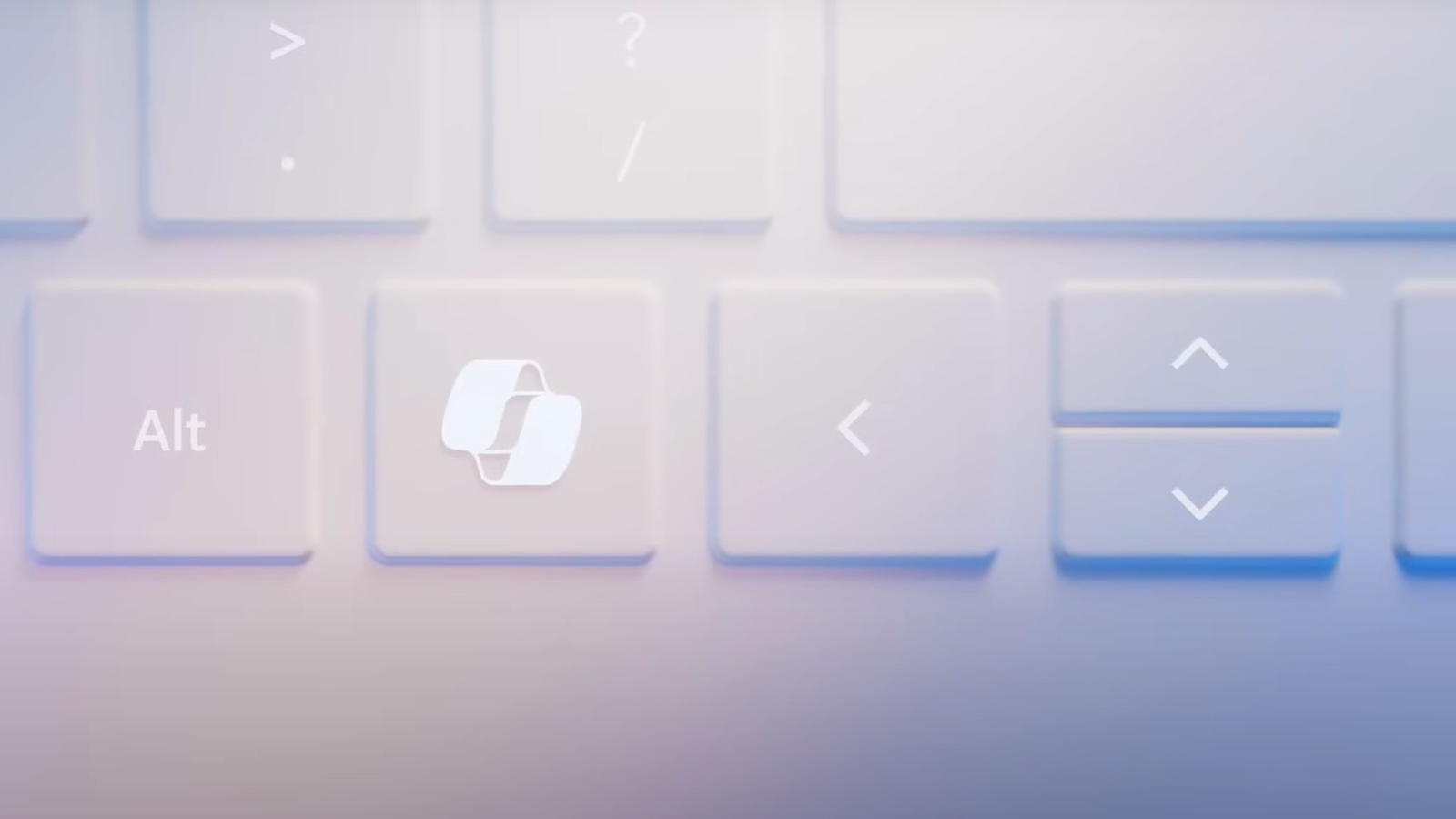Microsoft is adding a dedicated AI button to its Windows keyboards – the first significant change to its consoles in nearly 30 years.
Starting this month, many of Microsoft’s new Windows 11 computers, including upcoming Surface devices, will feature the “Copilot” key, a button that launches its AI companion.
By pressing the ribbon-like button, the user summons the AI chatbot powered by Bing which can help them with tasks such as summarising a dense article, looking for furniture online, or simply making settings changes on their PC.
It can even create a song from scratch, without the user knowing how to play an instrument or sing, having partnered with AI music experimentalists Suno.
Be the first to get Breaking News
Install the Sky News app for free
The Copilot key will be located near the space bar, replacing the right CTRL button on some PCs, while on others it will replace a menu key.
For devices where Copilot is not available or enabled, pressing the button will launch Windows Search instead of calling on its AI.
Microsoft hasn’t yet said which computer manufacturers are installing the Copilot button beyond its own in-house devices though it said some of the companies are expected to unveil their new models at a gadget show next week in Las Vegas.
How to fix the NHS: Cancer care
The New York Times sues OpenAI and Microsoft over copyright infringement
What 2023 has taught us about… science and technology
The Windows key was introduced to Microsoft’s keyboards in the 1990s and has been a universally recognised fixture ever since.
While AI is more prominent on mobile phones than computers, Microsoft has called 2024 the “year of the AI PC”, a symbolic moment in the tech world as companies battle it out in the AI revolution despite ethical and legal issues surrounding the technology.
Please use Chrome browser for a more accessible video player
Read more:
Microsoft’s multibillion-dollar OpenAI partnership examined by UK watchdog
Call of Duty maker to be bought by Microsoft
The New York Times last month sued both OpenAI – which developed ChatGPT – and Microsoft, alleging that its AI tools were built by infringing on copyrighted news articles.
Microsoft is not the only company with customised keys.
Apple pioneered the concept in the 1980s with its “Command” key, useful for keyboard shortcuts, while Google has a search button on its Chromebooks and was the first to experiment with an AI-specific key to launch its voice assistant on its now-discontinued Pixelbook.
Microsoft’s executive vice president, Yusuf Mehdi, said the change was a “transformative moment” in Windows’ journey with AI, adding that 2024 “promises to be nothing short of extraordinary”.










